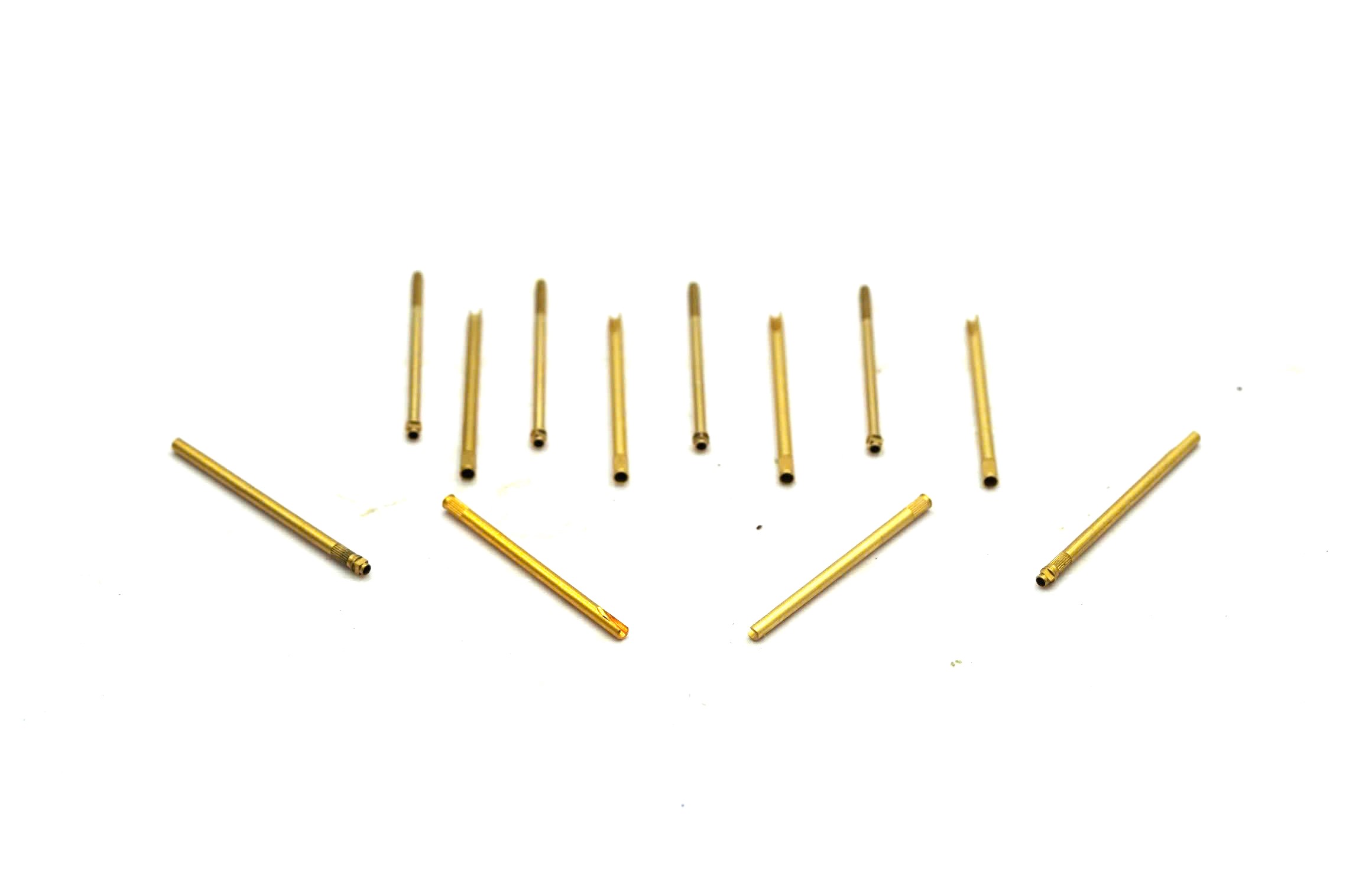By Franky Nguyen, AVF Decolletage
Introduction
When electronics are developed, every component must be tested for reliability before reaching the market. This is where test probes play a critical role.
A test probe is a small, precision-engineered component designed to establish temporary electrical contact between a testing device and the circuit under test. They ensure that signals can be measured accurately, enabling manufacturers to verify performance and reliability.
At AVF Decolletage, we manufacture high-precision test probes from premium brass alloys, designed for repeated use and consistent conductivity.
This article explains what test probes are, why they matter, and where they are used across industries.
What Is a Test Probe?
A test probe is a conductive pin, often spring-loaded, used to connect testing equipment to a circuit without permanently soldering or attaching wires.
Key features of test probes:
-
Conductive material (usually brass, plated with gold or nickel).
-
Smooth, burr-free surface for reliable contact.
-
Durability to withstand thousands of cycles.
-
Precision dimensions for accurate positioning.
Why Are Test Probes Essential in Electronics Testing?
Test probes are essential because they:
-
Ensure Reliable Contact – without damaging the device under test.
-
Enable Accurate Measurement – of voltage, current, and resistance.
-
Support Repeated Testing – durable enough for thousands of cycles.
-
Maintain Safety – isolating test equipment from the circuit.
In modern electronics, test probes save manufacturers both time and cost by allowing quick, repeatable testing.

Materials Used in Test Probes
Material selection is critical to probe performance. At AVF Decolletage, we use:
-
Brass (C36000, C17300, C54400, etc.) – best for machinability and conductivity.
-
Gold Plating – improves conductivity and reduces oxidation.
-
Nickel Plating – enhances wear resistance.
Types of Test Probes
-
Spring-Loaded Probes (Pogo Pins) – ideal for repeated contact.
-
RF Test Probes – used in telecommunications and 5G devices.
-
Automotive Probes – built to withstand vibration and heat.
-
Custom Test Probes – designed for specialized equipment.
Applications of Test Probes
Test probes are found in many industries, including:
-
Electronics Manufacturing – PCB and semiconductor testing.
-
Automotive – ECU and sensor verification.
-
Telecommunications – 5G, RF, and fiber optic testing.
-
Medical Devices – ensuring reliability of monitoring and diagnostic systems.
Quality Control for Test Probes
Like connector pins, test probes must meet strict standards. At AVF Decolletage, we perform:
-
Dimensional inspection.
-
Surface quality analysis.
-
Plating thickness checks.
-
Electrical resistance testing.
Conclusion
Test probes are essential tools in electronics testing. They provide accurate, reliable, and repeatable connections that make quality assurance possible in industries like aerospace, automotive, telecom, and medical devices.
At AVF Decolletage, we specialize in brass test probes manufactured with Swiss CNC precision and ISO-certified inspection.
FAQ
Q1: What are test probes used for?
They are used to establish temporary electrical contact for measuring and testing circuits.
Q2: Why is brass used for test probes?
It balances conductivity, machinability, and cost.
Q3: How many cycles can a test probe last?
High-quality probes can last for thousands of cycles with consistent performance.
Q4: What industries use test probes most?
Electronics, automotive, telecom, medical, and aerospace.
Q5: Does AVF Decolletage make custom probes?
Yes, we design and manufacture custom test probes upon request.


